Master’s programs in Linguistics
- Master degree in Linguistics
- Advantages of Master’s programs in Linguistics
- Disadvantages of Master’s programs in Linguistics
- Popular universities for obtaining a Master’s in Linguistics
- Admission requirements for Master’s programs in Linguistics
- Documents for admission to Master’s programs in Linguistics
- Cost of studying in Master’s programs in Linguistics
- Scholarships and grants for Master’s programs in Linguistics
- Career prospects After Master’s programs in Linguistics
- Is it worth studying in Master’s programs in Linguistics?
- Frequently Asked Questions
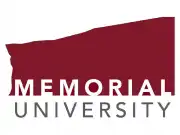
Master of Arts - French Studies
Memorial University of NewfoundlandThe MA in French Studies focuses on the French language as well as francophone culture and literatures from around the world. Our programme emphasises literary history, criticism, and theory, which give an excellent foundation for completing French studies in a PhD programme at any prestigious university…

Master of Arts - Linguistics
Memorial University of NewfoundlandThe Department of Linguistics emphasises data-driven, theoretically informed work into aboriginal languages, linguistic diversity and change, and language learning. Our graduate programmes start with a strong theoretical foundation (phonology, syntax, morphology, etc.) and expand from there. From…

Master - English Language and Literature
Istanbul Aydin UniversityThe department of English Language and Literature provides advanced education in English Language and Literature by exposing students to modern linguistic and literary methods, comparative approaches, and universal views.
Our Master's Degree programme at Istanbul Aydn University's Social…
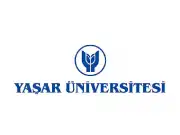
Master of Arts - English Language and Literature
Yasar UniversityThe Graduate School of Social Sciences at Yaşar University provides an interdisciplinary M.A. programme in English Language and Literature. The programme, which is supplemented with electives, provides areas of study not only for English Language and Literature majors, but also for graduates of other…

Master - English Studies
University of Economics and Human Sciences in WarsawFor individuals who wish to work as English language specialists or who want to start their own business in an English-speaking or international setting, the University of Economics and Human Sciences in Warsaw's graduate program in English Studies is a great option. As you study, you will hone your…
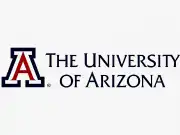
Master of Arts - English
The University of Arizona, USAWith training in both English and American literature, the Master of Arts in English program equips students with the analytical skills, varied viewpoints, and historical depth necessary to examine the present through the prism of the past.
Our program's faculty members are highly qualified…
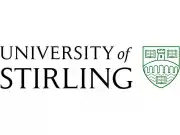
Master of Science - English Language Teaching and Management with Pre-Master's
University of StirlingThis course is appropriate for both novice and seasoned English language instructors. You will acquire the most recent theories and practices of TESOL (Teaching English to Speakers of Other Languages). You will acquire essential management skills to equip you for leadership positions in English language…

Master of Science - Environmental Management with Pre-Master's
University of StirlingOur Master's in Environmental Management program is globally acknowledged as a premier institution for teaching environmental managers. The course encompasses ecological, economic, social, political, and legal dimensions of environmental management. Your emphasis will be on theoretical frameworks,…
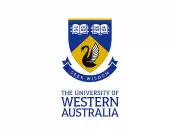
Master of Translation Studies
The University of Western AustraliaThe most specialized translation training is available in Western Australia's largest language hub. One of ten Asian and European languages is translated into English in this lesson. In Western Australia, this is the only institution offering one-and-a-half or two years of professional translation…
Master degree in Linguistics
A Master’s program in linguistics is an educational program aimed at in-depth study of language, its structure, history, and application in various fields. The programs are designed for students who already have basic training in linguistics or philology and wish to develop analytical, research, and applied skills.
Key areas of study include:
- Theoretical linguistics (phonetics, morphology, syntax, semantics)
- Applied linguistics (translation, interpretation, language teaching)
- Sociolinguistics and psycholinguistics
- Computational linguistics and natural language processing (NLP)
- Intercultural communication and language in an international environment
Master’s programs in linguistics are available for international students and offer the opportunity to study in various countries, including the USA, the UK, Germany, Canada, and Australia. The education is focused on research activities, translation practice, teaching, and modern language analysis methodologies.
Advantages of Master’s programs in Linguistics
Studying in a Master’s program in linguistics offers several advantages:
- Deep understanding of language – programs help analyze language structures and understand the patterns of their functioning.
- Career opportunities – graduates can work as teachers, translators, researchers, or specialists in text processing and data analysis.
- International experience – studying abroad contributes to the development of language skills and intercultural competence.
- Research base – Master’s programs provide access to modern laboratories, language corpora, and research centers.
- Program flexibility – students can choose specializations, combining theory and practice.
These advantages make the Master’s program attractive for young people and international students who want to build a career in an international environment or academic sphere.
Disadvantages of Master’s programs in Linguistics
Among the potential challenges, the following can be highlighted:
- High workload – programs often include intensive research and writing academic papers.
- Cost of education – studying abroad can be expensive, especially for international students.
- Competition for admission – top universities have strict requirements for knowledge and experience.
How to Overcome These Disadvantages
- Time management – using time management techniques and schedules helps cope with the workload.
- Financial planning – exploring scholarships, grants, and part-time employment reduces financial burden.
- Preparation for admission – preliminary study of requirements and completing professional development courses increase chances of enrollment.
- Community support – participation in student and professional clubs helps manage stress and receive assistance from peers.
These strategies allow students to successfully overcome challenges and fully utilize the opportunities of the Master’s program.
Popular universities for obtaining a Master’s in Linguistics
Many universities offer Master’s programs in linguistics. Among them, the following are particularly popular:
| University | Country | Program Features |
|---|---|---|
| University of Arizona | USA | Strong research base, programs in psycholinguistics and applied linguistics |
| University of Stirling | UK | Focus on intercultural communication and translation, internship opportunities |
| University of Oxford | UK | Traditions of academic research, wide range of courses in theoretical linguistics |
| University of Toronto | Canada | Specialization in computational linguistics and NLP |
| University of Melbourne | Australia | Practical orientation, programs for teaching English as a foreign language |
These universities provide international students with the opportunity to study language and develop skills in demand on the global job market.
Admission requirements for Master’s programs in Linguistics
For admission to a Master’s program in linguistics, the following conditions are usually required:
- A Bachelor’s degree in linguistics, philology, or related disciplines
- Average GPA of at least 3.0 (or equivalent)
- Proficiency in English (TOEFL 90+ or IELTS 6.5+)
- Recommendations from professors or employers
- Portfolio of academic papers or projects (for research-oriented programs)
Some universities may additionally require an interview or a motivation letter.
Documents for admission to Master’s programs in Linguistics
The standard application package includes:
- Application for admission – through the university’s official portal
- Academic transcript and Bachelor’s degree diploma
- Recommendation letters – 2–3 letters from professors or employers
- Resume / CV – description of work experience and research projects
- Motivation letter – explanation of study goals and career plans
- English proficiency certificate – TOEFL, IELTS, or equivalent
- Portfolio (if required) – for applied or research programs
Some universities may request additional documents, such as a portfolio of academic publications.
Cost of studying in Master’s programs in Linguistics
The cost of a Master’s program depends on the country and university:
| Country | Cost per Year (USD) |
|---|---|
| USA | 25,000 – 50,000 |
| UK | 20,000 – 35,000 |
| Canada | 18,000 – 30,000 |
| Australia | 22,000 – 40,000 |
| Germany | 0 – 5,000 (for most public universities) |
For international students, expenses may include accommodation, medical insurance, and study materials.
Scholarships and grants for Master’s programs in Linguistics
Many universities and international organizations provide scholarships for Master’s programs:
- Fulbright Program (USA) – covers tuition and living expenses
- Chevening Scholarships (UK) – for students from developing countries
- DAAD (Germany) – scholarships for international students in Master’s programs
- University-specific grants – universities such as the University of Arizona and the University of Stirling offer partial and full scholarships
Using scholarships helps significantly reduce the costs of tuition and living expenses.
Career prospects After Master’s programs in Linguistics
Graduates of Master’s programs in linguistics can build careers in:
- Language teaching and development of educational programs
- Translation and content localization
- Research in psycholinguistics and sociolinguistics
- Computational linguistics and NLP technology development
- International organizations and media
The average salary for specialists in the USA ranges from 50,000 to 80,000 USD per year, in Europe – from 35,000 to 60,000 EUR.
Is it worth studying in Master’s programs in Linguistics?
Choosing a Master’s program in linguistics abroad is a strategic decision that offers both academic and career advantages:
- Professional development. Studying at an international university provides access to modern language analysis methods, research laboratories, and unique practical programs. This allows graduates to achieve a high level of competence, which is in demand in both academic and business environments.
- Intercultural skills. An international environment fosters the development of intercultural communication, which is especially important for careers in global companies, translation, and educational centers.
- Investment in the future. Despite the high cost, studying abroad increases the chances of a competitive salary and career growth. Using scholarships and grants makes education more accessible.
- Flexibility in career paths. Graduates can work in various fields – from language teaching and academic research to IT projects related to language processing and artificial intelligence.
- Research prospects. For students interested in a research career, Master’s programs provide a foundation for pursuing doctoral programs or participating in international projects.
Conclusion: A Master’s in linguistics abroad is not just about learning languages but a comprehensive development of competencies that provide a sustainable advantage in the job market and open international opportunities.
Frequently Asked Questions
- How long does a Master’s in linguistics last?
Usually 1–2 years, depending on the country and chosen specialization. - Is it necessary to know multiple languages?
For most programs, proficiency in English is sufficient, but knowledge of a second language is an advantage. - What are the job opportunities after a Master’s?
Teaching, translation, research, work in international companies, and IT projects. - Can I combine studying with work?
Yes, many universities allow part-time employment or internships. - How can international students obtain a scholarship?
It is necessary to submit a separate application for a scholarship or grant, often with academic achievements and a motivation letter.